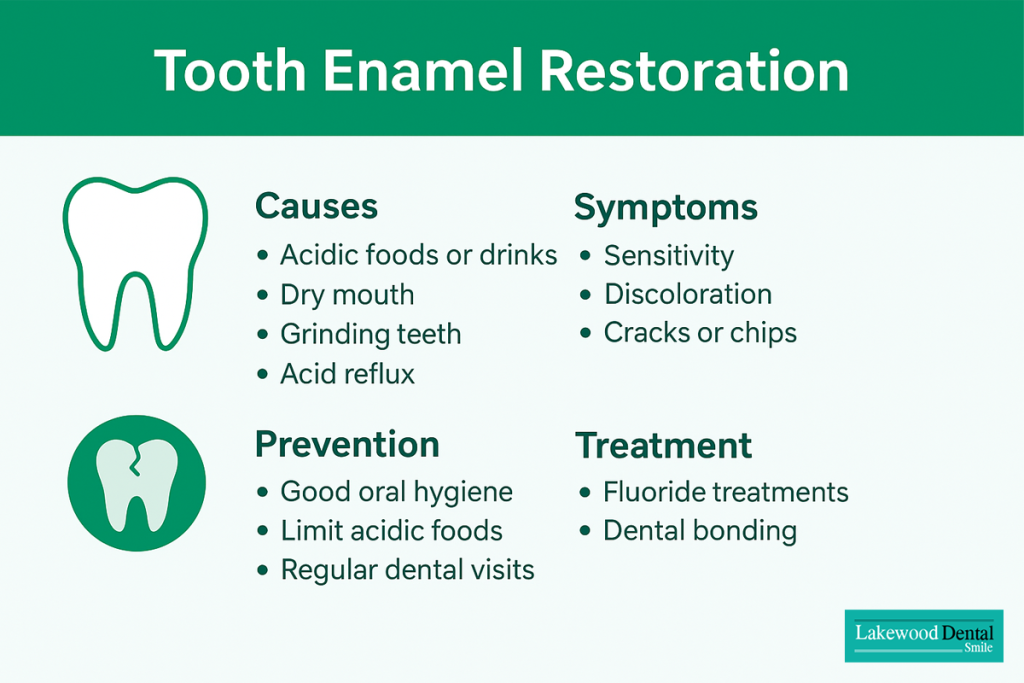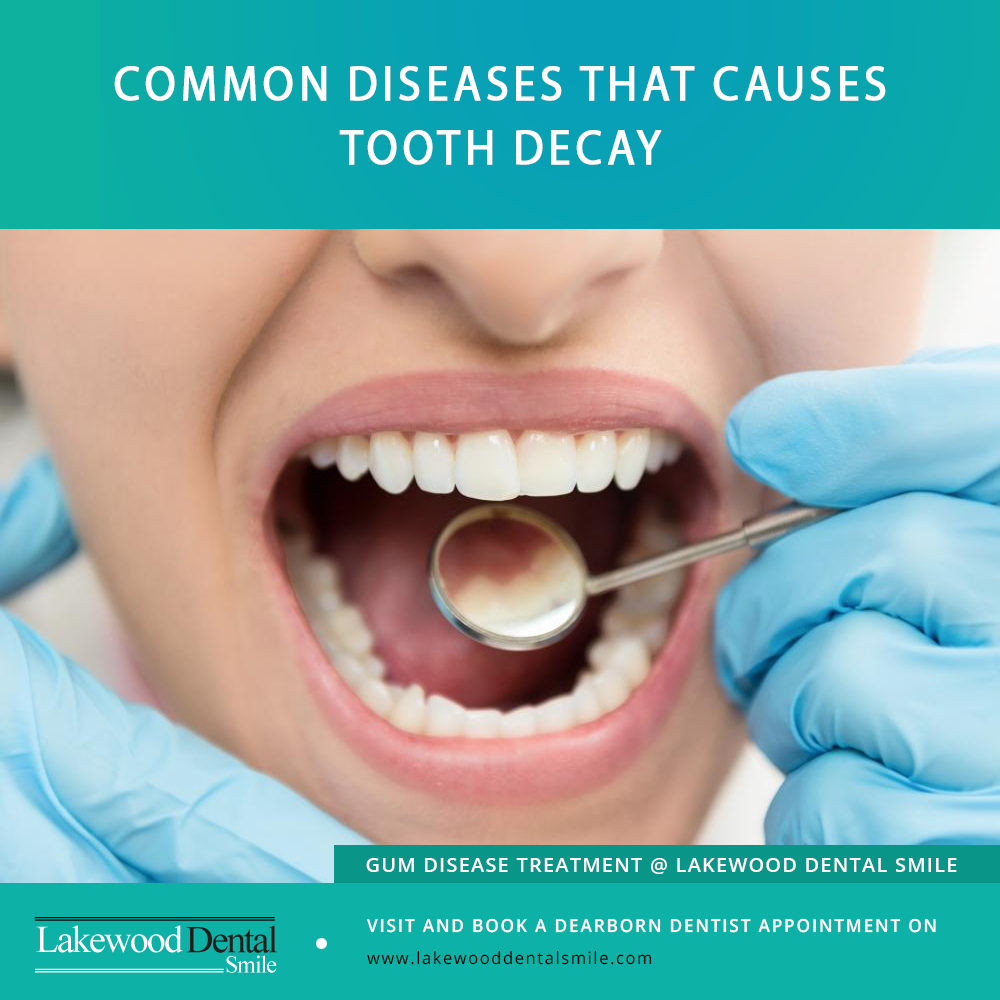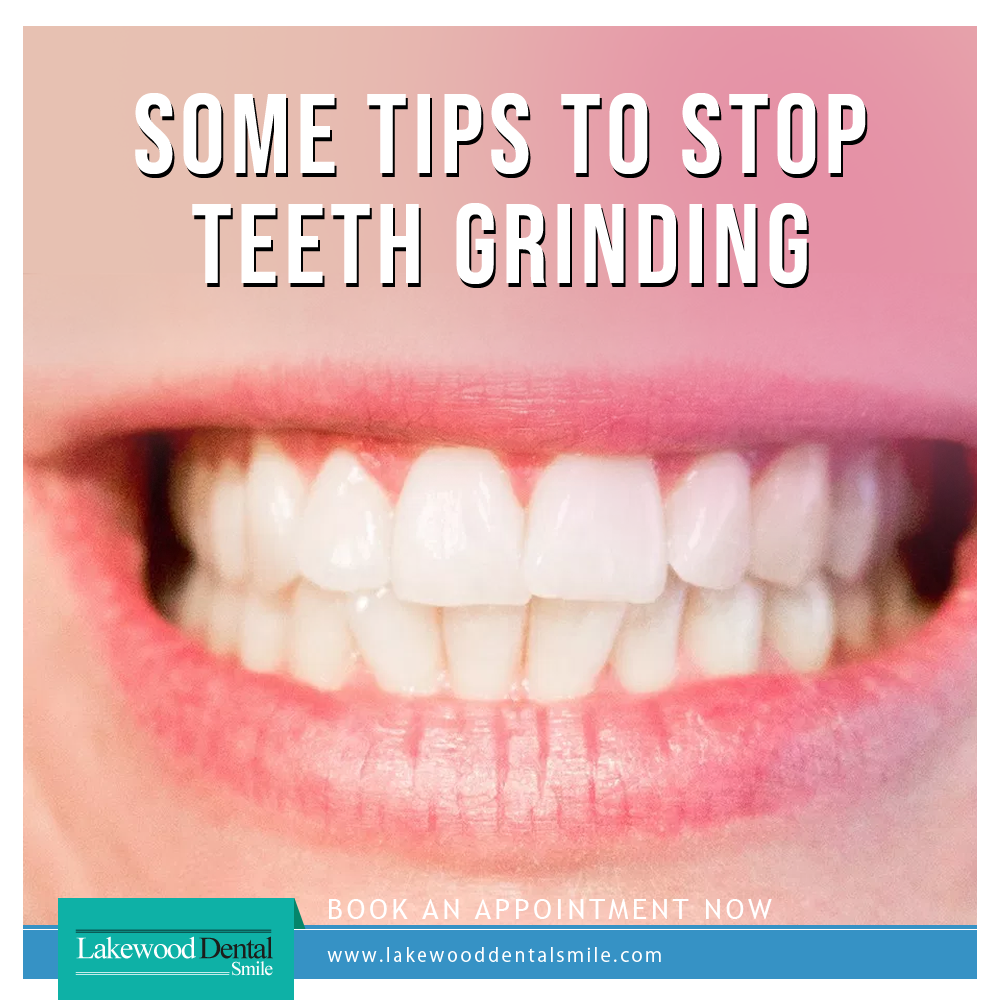
Tooth enamel restoration is essential for protecting your smile and maintaining long-term oral health. Enamel is the thin outer covering of the tooth and the hardest tissue in the human body. It shields the crown—the visible part of your tooth above the gums—and provides protection against chewing, biting, and temperature changes. Because enamel is translucent, the underlying dentin determines your tooth color, whether white, grayish, yellowish, or darker.
Unfortunately, enamel can be stained by tea, coffee, red wine, fruit juices, and tobacco. While professional cleanings at your dentist’s office can remove most surface stains, enamel erosion is different. Once enamel is lost, it does not regenerate naturally, which is why preventive care and professional tooth enamel restoration treatments are so important.
What Causes Enamel Erosion?
Enamel erosion occurs when acids wear away this protective layer. Common causes include:
- Excessive soda or soft drink consumption (phosphoric and citric acids)
- Fruit juices (some are more erosive than sulfuric acid)
- Dry mouth or reduced saliva flow
- High-sugar or starchy diets
- Acid reflux or gastrointestinal problems
- Medications such as aspirin and antihistamines
- Genetics (inherited conditions)
- Environmental factors (tooth grinding, wear and tear, stress, chemical exposure)
Natural conditions such as attrition, abrasion, abfraction, and corrosion also contribute to enamel loss.
Symptoms of Enamel Erosion
Recognizing enamel damage early can prevent more serious dental issues. Warning signs include:
- Tooth sensitivity to hot, cold, or sweet foods
- Yellowing or discoloration
- Cracks, chips, or rough edges on teeth
- Severe pain when eating or drinking
- “Cupping”—small dents forming on chewing surfaces
If left untreated, enamel erosion increases the risk of cavities and tooth decay.
Preventing Enamel Erosion
While enamel cannot grow back, you can strengthen what remains with good daily habits:
- Brush twice a day with fluoride toothpaste and a soft-bristled brush
- Floss daily and rinse with fluoride mouthwash
- Limit acidic foods and drinks (sodas, citrus, vinegar-based items)
- Rinse with water after consuming acidic foods or drinks
- Use a straw for acidic beverages to minimize direct contact
- Stay hydrated and address dry mouth symptoms
- Visit your dentist regularly for professional cleanings and exams
Tooth Enamel Restoration Treatments
If enamel erosion has already occurred, your dentist may recommend restoration options to protect teeth and restore function:
- Fluoride treatments: Strengthen weakened enamel and help remineralize teeth.
- Dental bonding: A tooth-colored resin is applied to cover damaged areas, protecting enamel and improving appearance.
- Crowns or veneers: For severely eroded teeth, these restorations provide long-term protection, restore function, and improve aesthetics.
- Remineralizing products: Some toothpaste and professional treatments help replenish lost minerals and reduce sensitivity.
✅ Key Takeaway: Tooth enamel does not regenerate, but tooth enamel restoration and preventive care can protect your teeth, restore function, and preserve your smile. By maintaining good oral hygiene, making smart dietary choices, and visiting your dentist regularly, you can avoid further enamel damage and enjoy stronger, healthier teeth.
📍At Lakewood Dental Smile in Dearborn, Michigan, we provide expert care in enamel protection and restoration. Whether you need fluoride treatments, bonding, or advanced restorative options, our team will guide you to the best solution for your smile.




